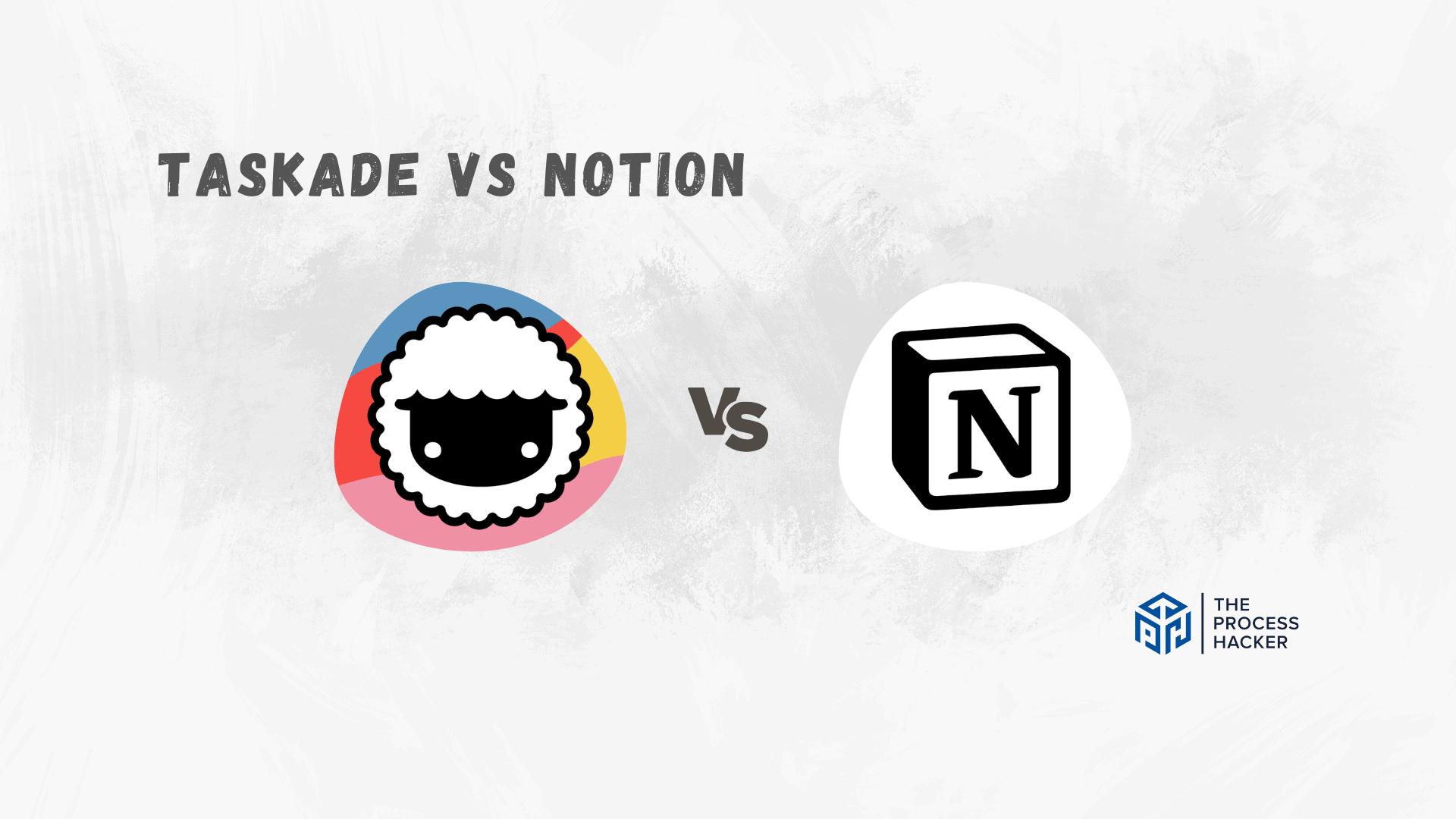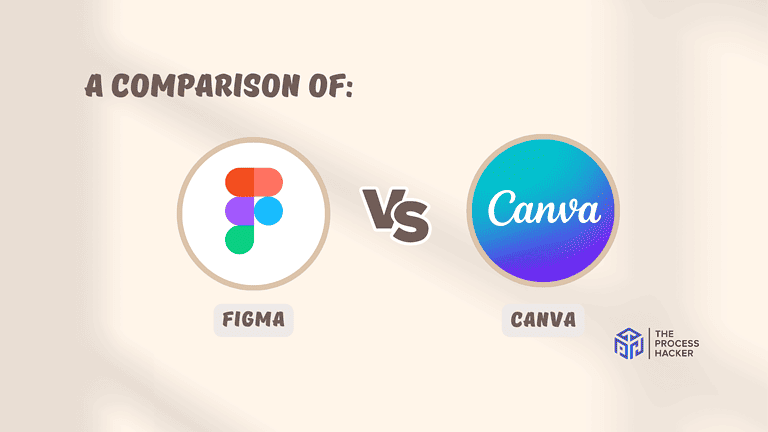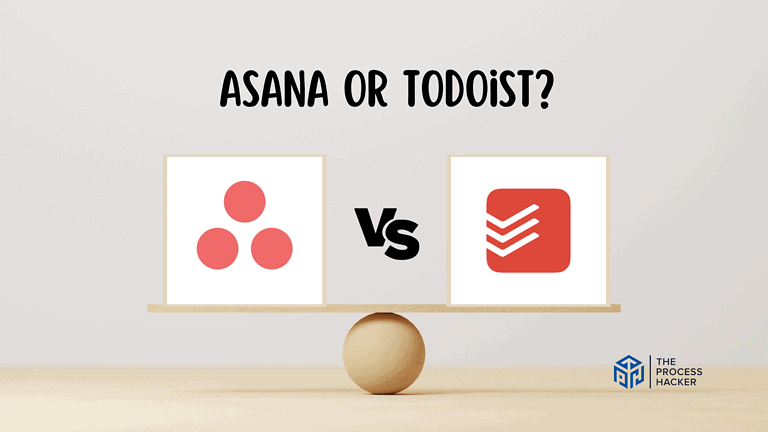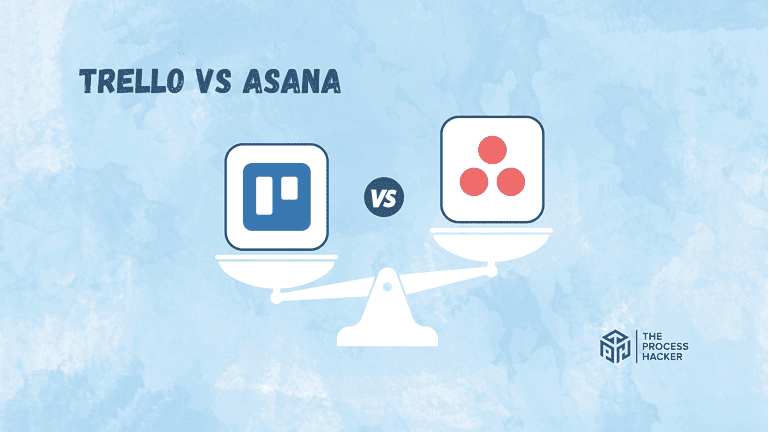Sales Automation: A Comprehensive Guide for 2024
Hey there, sales rockstar! Are you ready to revolutionize your sales game and take it to the next level?
Then buckle up and get ready for an all-inclusive sales automation guide that will blow your mind. Automation has completely transformed how businesses handle their processes, opening doors to remarkable growth and closing more deals!
But let’s face it, you don’t want to lose that human touch that makes you stand out from the competition, right? Well, fear not, my friend!
In this guide, we’ll show you how to automate and recommend the best sales automation tools to succeed in 2024! Plus, we’ll dive into the AI factor and master the art of balancing automation and personalization.
We’ll make sure you have all the tools you need to keep your sales game sharp while still delivering that personal touch that sets you apart.
Get ready to revolutionize your sales game!
Bottom Line Up Front (BLUF) Summary
- Sales automation is software that helps you streamline, automate, and measure sales tasks and workflows, enabling you to close more customers and maintain strong customer relationships.
- Relies heavily on customer relationship management (CRM), lead scoring, task automation & AI to optimize processes.
- Successful implementation requires assessing current sales processes, setting sales objectives, and providing training support to your salespeople.
What is Sales Automation?
Sales automation is software that helps you increase productivity and streamline your sales tasks and processes. Imagine being able to send follow-up emails, create drip sales campaigns, and assign sales tasks with just a few clicks.
Plus, you can track your emails, phone calls, and in-person visits in real-time for better contact with your customers. But wait, there’s more!
Sales automation takes things to the next level by leveraging automated sales processes to streamline your sales workflow. With a platform that triggers predefined actions when certain business events occur, you can reduce the time and effort required to complete sales tasks and in the end, close more deals!
Why Should You Implement Sales Automation?
Sales automation empowers businesses to streamline sales processes, close more deals, and boost revenue by automating repetitive sales tasks and enhancing customer engagement. By leveraging sales automation technology, your sales reps can focus on building relationships and closing deals.
In the meantime, your sales automation software takes care of tasks like emailing, lead prioritization, lead distribution, and report generation. Thus, sales process automation boosts sales productivity and helps you and your sales team stay ahead of your competition.
Streamline Repetitive Tasks
Sales automation tools simplify tedious sales tasks, such as email follow-ups and meeting scheduling, allowing sales teams to focus on building lead and customer relationships and closing deals. These lead enrichment tools can scrape the web for new prospects, provide lead lists with no duplicates, score leads to determine priority, and automates following up and scheduling meetings.
As a result, your sales reps can focus on more strategic sales activities, which boosts their productivity. By automating tasks like sending follow-up emails, manual prospect data entry, and creating new profiles for leads engaging with sales data and marketing materials, sales teams save valuable time and resources.
Streamlining repetitive tasks like email follow-up or meeting scheduling also increases accuracy and reduces human error, ensuring that your people deliver high-quality service.
Enhance Customer Service and Engagement
Sales automation not only streamlines tasks but also enhances customer engagement by providing personalized and timely communication. This improved engagement leads to better customer satisfaction and loyalty, ultimately driving revenue growth.
These digital tools enable businesses to create more targeted and relevant interactions with potential customers. These tools have amazing features, including segmentation, lead enrichment, chatbots, site tracking, meeting scheduling tools, and email automation tools,
By doing so, businesses can effectively leverage the benefits of sales automation to ensure that there are no more customer service issues falling. Simultaneously, each sales rep in your sales organization will maintain a solid connection with their customers.
What are the Key Components of Sales Automation?
To create a seamless and efficient sales process, sales automation relies on three key components: CRM integration, lead scoring and prioritization, and task automation. By integrating these components into their sales process, businesses can optimize their sales pipeline and boost revenue.
Customer Relationship Management (CRM)
Having a Sales CRM tool is essential for effective sales automation, as it centralizes your data and automates various sales tasks. CRM systems help you keep track of your conversation history, making it easier to monitor progress and maintain customer relationships. Integrating your CRM with automation tools allows you to streamline your sales processes, increase efficiency, and improve customer satisfaction.
Moreover, your CRM enables you and your sales team to automate administrative tasks like setting up sales appointments, sending follow-up emails, and updating their sales pipeline. This not only saves time and effort for your sales teams but also ensures accuracy and consistency in the sales process.
Lead Scoring and Prioritization
Lead scoring and prioritization is another crucial component of sales automation. It enables you to identify and prioritize leads based on their level of interest and engagement. By assigning scores to leads based on their behavior and actions, your sales teams can focus on high-value leads and close deals faster.
Lead scoring and prioritization also help you identify the most effective marketing campaigns and channels, enabling you to optimize their marketing efforts and generate more leads. Sales automation software can automate lead scoring and prioritization based on predefined criteria, such as lead source, demographics, behavior, and engagement level.
Sales Process Automation
Sales process automation work refers to automating repetitive and time-consuming tasks in your sales process, such as lead nurturing, follow-ups, and scheduling. By automating these manual tasks, sales teams can save time and focus on more strategic activities, such as building relationships and closing deals.
Further, automating sales processes also helps you ensure consistency and accuracy in your sales processes, reducing the risk of errors and delays. Sales automation software can automate tasks such as sending follow-up emails, finding contact information, and scheduling appointments, freeing up time for your sales reps to focus on higher-level tasks.
How to Choose the Right Sales Automation Tool?
The market for sales automation tools is vast and varied, with different tools offering different features and functionalities. Therefore, it’s critical to choose the right tools that align with your business needs and sales objectives.
Here are some key factors to consider when choosing these automation tools:
- Integration: Ensure that the automation tools you choose can integrate with your existing CRM and other sales tools to maximize efficiency and productivity.
- Customization: Look for automation tools that offer customization options to tailor the tools to your specific sales processes and workflows.
- Ease of Use: Choose automation tools that are easy to use and require minimal training to ensure quick adoption and maximize productivity.
- Analytics: Look for a reporting automation tool with robust analytics and reporting capabilities to help you track and measure your sales performance.
What Are the Best Sales Automation Software Tools?
As the demand for automation grows, there are many tools available to help you achieve your business goals. Here is a list of some of my favorite sales automation platforms:
Pipedrive
Pipedrive is a CRM and pipeline management tool that helps businesses manage their sales processes more efficiently. It offers features such as lead scoring, task automation, and customizable pipelines to streamline your sales processes.
HubSpot Sales
HubSpot is an enterprise-level sales and marketing automation CRM to automate tasks such as scheduling meetings, sending follow-up emails, and tracking customer interactions. It also offers lead scoring, task automation, and personalized outreach options.
ActiveCampaign
ActiveCampaign is an all-in-one marketing and sales automation platform that includes sales automation features such as lead scoring, task automation, and personalized email campaigns. It also offers integrations with popular CRMs and other sales tools.
HoneyBook
HoneyBook is a customer relationship management platform that offers sales automation features such as task automation, lead tracking, and customizable forms for capturing leads. It also provides analytics and reporting to track your sales performance.
The Role of AI in Sales Automation
AI is a game-changer in sales automation, delivering advanced lead scoring, predictive analytics, and intelligent recommendations to optimize sales processes and drive revenue growth. By leveraging AI capabilities, you and your sales teams can focus on qualified leads, make data-driven decisions, and enhance customer engagement.
Sales AI can also help you automate repetitive tasks like data entry, customer segmentation, and lead generation and qualification. Moreover, AI-driven tools can analyze your customer data to detect patterns and trends, providing your sales team with tailored recommendations to help them make smarter decisions.
Apollo
Apollo is a lead intelligence platform that uses AI to automate lead qualification, data enrichment, and personalized outreach. It also offers advanced analytics and reporting capabilities to help you track your sales performance.
Gong
Gong is a sales intelligence platform that uses AI to analyze sales conversations and provide insights into customer buying behavior, helping your team make informed decisions. It also offers task automation and coaching features to improve the performance of your sales reps.
Jasper AI
Jasper AI is a sales copywriting tool that uses AI to generate personalized email and call scripts, saving time for your sales reps. Further, create sales pages and landing pages to generate more leads and improve conversions.
How to Effectively Implement Sales Automation
Implementing sales automation effectively requires assessing current sales processes, including the sales funnel, setting clear goals and objectives, and providing training and support for your sales teams. These strategies ensure the chosen tools align with business needs, deliver the desired results, and help sales teams adapt to new sales workflows.
Evaluate Your Sales Processes
Before implementing sales automation, evaluating your current sales processes is crucial. This step helps identify areas where automation can be most beneficial. It ensures a smooth transition to new tools and workflows. By analyzing your sales processes and identifying areas for improvement, you can create a plan for sales process automation implementation that optimizes your sales efforts.
In addition, evaluating your sales processes helps you understand your strengths and weaknesses. This understanding enables you to decide which automation tools to adopt. By laying the foundation for a successful strategy, you can ensure that the chosen tools deliver maximum value and impact.
Set Clear Goals and Objectives
Setting clear goals and objectives is essential for sales automation success. Clear goals provide a sense of direction and focus, motivating sales teams to work toward a common purpose. Examples of clear goals and objectives include increasing sales revenue, improving customer satisfaction, reducing customer churn, and boosting market share.
To set effective goals, you should follow the SMART criteria (Specific, Measurable, Achievable, Relevant, and Time-bound). Then, break down larger goals into smaller, more manageable tasks.
Further, you should involve your leadership and sales in the goal-setting process. This ensures buy-in and commitment from the entire sales team, improving the chances of successful sales automation implementation.
Train and Support Your Sales Reps
Providing training and support for sales teams is crucial for successful sales automation implementation. Training sessions help sales reps understand the features and functionalities of sales tools processes.
By integrating sales automation into their day-to-day work, each sales rep will work less on time consuming sales tasks. Accordingly, the time sales reps spend on customer interaction should increase.
Moreover, ongoing support ensures that sales teams can troubleshoot any issues that may arise and receive guidance on best practices. By investing in training and support, businesses can maximize the value of automation and ensure that their sales teams are equipped to succeed in an increasingly competitive market.
Things to Keep in Mind

While sales automation can bring significant benefits to businesses, it’s essential to keep the following things in mind to ensure the best results.
How to Balance Automation and Personalization
Maintaining a human touch in sales interactions is crucial for building strong and genuine customer relationships. While sales automation tools can save time and effort, they should not replace the personal connection that your sales reps establish with potential customers. Sales reps should leverage automation to amplify, not replace, human interaction.
By striking a balance between automation and personalization, your business can ensure that your sales processes remain efficient while still maintaining strong customer relationships. This balance ultimately leads to improved customer satisfaction, loyalty, and revenue growth.
How to Measure the Success of Sales Automation
Measuring the success of sales automation involves tracking key performance indicators (KPIs), such as conversion rates, sales cycle length, and customer satisfaction, to evaluate the impact of automation on sales performance. Tracking these KPIs helps you and your team understand the effectiveness of your automation tools and adjust your strategies accordingly.
Automated sales reporting and analytics can also be instrumental in tracking your team’s sales performance and pinpointing areas for improvement. By regularly monitoring the success of sales automation, you can optimize your sales processes and ensure that your sales teams are equipped to achieve their goals and drive revenue growth.
How to Overcome Common Challenges in Sales Automation
Overcoming common challenges in sales automation, such as resistance to change and loss of personal touch, requires a strategic approach, ongoing training, and a focus on maintaining a balance between automation and human interaction. By addressing these challenges head-on, you can ensure a smooth and successful implementation in your team.
One crucial strategy for overcoming these challenges is to involve your sales teams, including sales managers, in the implementation process and provide ongoing training and support. This helps your sales reps adapt to new tools and workflows and ensures they can effectively use the sales automation tools while maintaining a solid connection with their customers.
Ultimately, overcoming common challenges in sales automation leads to more efficient sales processes and stronger customer relationships. By balancing automation and personalization, you and your sales team can achieve unprecedented growth and efficiency while maintaining the human touch that sets you apart.
The Future of Sales Automation
The future of sales automation is bright, with AI and machine learning expected to play an increasingly significant role in the sales process. In the future, AI-powered tools will grow by leaps and bounds, helping you and your business automate more complex tasks, such as lead scoring and forecasting, and provide more personalized and targeted customer experiences.
Moreover, chatbots and virtual assistants are becoming increasingly popular in sales automation, providing businesses with a new way to engage with customers and handle customer queries and concerns.
Final Thoughts on Sales Automation
Sales automation is a game-changer for businesses looking to streamline their sales processes, boost efficiency, and drive revenue growth. By leveraging automation tools and strategies, you can automate repetitive sales tasks, enhance customer engagement, and focus on building relationships and closing deals.
To succeed, you need to assess your current sales processes, set clear goals and objectives, and provide training and support to your salespeople. By doing so, your business can effectively leverage the power of sales automation while maintaining a strong connection with your leads and customers.
Frequently Asked Questions
How can sales automation benefit you?
Sales automation benefits you significantly as it makes it easier for you to engage customers and focus on building better relationships.
It can help you streamline processes, reduce manual labor, and free up resources to focus on more critical tasks. It also allows you to track customer interactions and gain valuable insights into customer behavior.
How do I choose the right sales automation tools for my business?
Evaluate your current sales process, identify where automation can help, and pick tools that meet your business needs and objectives. This is the best way to choose the right sales automation tools for your business.
What role does AI play in sales automation?
AI helps sales teams increase efficiency and revenue through lead scoring, predictive analytics, and intelligent recommendations.
These tools can help sales teams identify the best leads, prioritize tasks, and make more informed decisions. They can also provide insights into customer behavior and preferences, allowing sales teams to tailor their approach.















